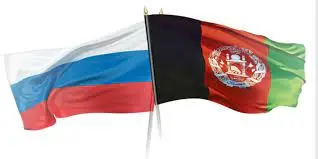Currently Afghanistan is firmly in the news headlines as a result of the contemporary chaos and drama in the country, although this is not something that is particularly new in nature. Russia has had a long and complicated history in and around the Central Asian country of Afghanistan, especially when taking into account the involvement of other powers vying for influence there. There is a long and tangled history of interaction, competition and conflict between Western powers (namely Britain and the United States) and Russia in Afghanistan in various political and geopolitical eras.
The Great Game of the 19th century between the British and Russian empires, the proxy Cold War conflict between the Soviet Union with the United States and its allies, and within the current frame of the US-led Global War on Terrorism that saw the US occupy the country for two decades.
Contemporary Russia differs significantly in terms of its politics and policy from Imperial Russia and the Soviet Union, even if a number of security concerns do remain constant over time, especially military (terrorism and radicalisation), social (drugs and criminality) and political (shaping state and human insecurity) risks and hazards that stem from processes and events occurring in Afghanistan. Many of the problems and events that are occurring today are a result of the processes that began in the period of the Soviet intervention in Afghanistan (1979-89), when the US and its allies supported and facilitated armed groups in the short-term to undermine Soviet operations to support its client government. These groups have evolved over time and created new constellations and groups, which the Soviet Union and later Russia sought to contain and prevent from creating zones of instability and risk from the Southern border with the use of proxies and partners.
There are three different regional inter-governmental security organisations operating in the broader area with differing degrees of Russian participation and influence – the Organisation for Security and Cooperation in Europe OSCE), the Shanghai Cooperation Organisation (SCO) and the Collective Security Treaty Organisation (CTSO).
The current line of Russian diplomacy and foreign policy is highly pragmatic, goal and interest orientated, which differentiates it significantly from the strong role and presence of ideology in the Soviet approach.
In this respect, the approaches of the liberal West and Russia have changed places. Whereas after the Cold War, the US-led West has favoured a messianic-like approach to spread liberalism and make other countries in their political and social image, Russia tends to base relations on a more practically grounded basis. The mismanagement of the US-led occupation of Afghanistan was likely to proceed in its current track, which was likely understood by Russian experts. Thus, while the US tried to blame Russia for its Afghan failure (the fake news about Russia paying Taliban bounties for killing US military personnel), Russia did not break off relations with the various competing groups in the country (domestic and foreign) and kept dialogue and has attempted cordial relations in spite of a difficult recent past. Russia is in contact and negotiations with the Taliban, in spite of the Taliban being classed as an illegal organisation in Russia, underlining a highly pragmatic diplomatic approach.
Vladimir Putin (23 August 2021) participated in an extraordinary session of the CSTO to discuss a collective approach to potential cross-border threats and challenges. Another example of high-level diplomacy is the conversation between the Foreign Ministers of Russia and Pakistan on the situation in Afghanistan on the 21st of August 2021. The focus of this phone meeting also moved away from solely risks and challenges, to the subject of facilitating an intra-Afghan dialogue as a mechanism to try and create a more stable state structure and therefore possess less threats and risks for states and people in Afghanistan and the wider region.
Also read: PM Modi holds brainstorming session with Russian President Vladmir Putin over Afghanistan
Russia is engaging in proactive forms of humanitarian diplomacy (maintaining open dialogue between groups and attempting to alleviate the conditions of victims of the conflict) and in Afghanistan, which is in keeping with the spirit of the later iterations of the Russian Foreign Policy Doctrine. That doctrine focuses on alleviating some of the instability and threats created by the increasingly destructive, short-term foreign and security policy driven by the US unipolar global order in its relative decline.
The fact that Russia’s embassy remains open is indicative of their commitment to having the institutional structure in place to support their role and participation in the future of the country. This differs from the US plea for the Taliban to spare their embassy while they evacuate, where many observers have drawn parallels with the undignified and inglorious retreat from Saigon before the fall of the client South Vietnamese state in 1975.
[Dr Greg Simons is a visiting senior fellow (Public Diplomacy) at Tillotoma Foundation, a global think tank working on International Relations, Diplomacy and Policy. Views expressed are personal]




















